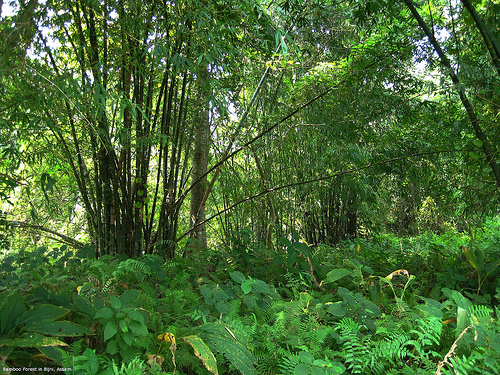In the northern Indian province of Assam, there’s a forest named after one man — not a politician, or a historical hero, but a guy who lives there today. It’s named after him because he planted most of its 1,360 acres.
Jadav Payeng, known as Molai, has been living in the area for more than 30 years, planting trees. Once this area was a desolate sandbar; now it’s a jungle that’s home to tigers and rhinoceroses and elephants.
Payeng told the Times of India that he first started working on the forest in 1979, when he saw flood-stranded snakes die from heat on the barren sandbar, with no trees to protect them. He told the paper:
I alerted the forest department and asked them if they could grow trees there. They said nothing would grow there. Instead, they asked me to try growing bamboo. It was painful, but I did it. There was nobody to help me. Nobody was interested.
Later, he says, he started planting real trees and transported red ants from his village area to help improve the sandbar’s soil quality.
For what it’s worth, the Indian government tells a slightly different version of this story. In 1980, according to the Deccan Chronicle, the district’s forestry division was working on a project to plant about 500 acres of trees.
Assistant conservator of forest Gunin Saikia, who is presently posted at Sivsagar district, said, Mulai was one of the labourers who worked in our project which was completed after five years. He chose to stay back after the completion of the project as others left.
Choose whichever origin story most appeals to you — the result is the same. This man has made it his life’s work to build a forest where none existed before and defend the wildlife that lives there. Take that, Johnny Appleseed.




